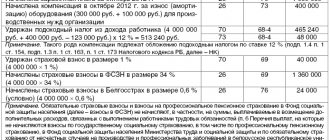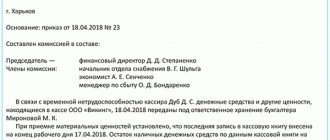Registration of employment has a regulated procedure that must be followed by the employer. The new employee himself must also clearly understand what stages he will have to go through during employment, as well as what rights he has in this regard.
Registration of a new employee is carried out in accordance with the rules prescribed in Article 68 of the Labor Code. The employer is obliged to fully comply with the prescribed points, and failure to comply may be considered a serious violation.
Registration of employment
Employment is always a multi-stage procedure. Hiring is carried out only after the candidacy of a new employee is approved. The selection of candidates itself is carried out differently in different organizations and varies depending on the level of the specialist being hired.
Employment is always a two-way process. On the one hand, the candidate himself looks at whether the position is suitable for him, and on the other hand, the employer evaluates the level of professionalism of the person hired for the position, his qualifications and personal qualities. This approach is very justified, because often long-term cooperation is important for both the employee and the employer, and this is only possible if mutual expectations are met.
One of the most important documents when registering a new employee is the employment contract. The agreement on paper specifies all the rights and obligations that are assigned to both parties to the cooperation. By signing it, the employee accepts all the rules established in the organization, from the work schedule to corporate ethics. However, a signature on an employment contract is not yet a reason to consider yourself hired. After its approval, the employer is obliged to formally register the new person.
Legislative regulation
Art. 68 of the Labor Code of the Russian Federation indicates those stages that legitimize the employment procedure. Namely, the fact that the employee is considered hired only after the corresponding order is issued by the organization.
The Labor Code also stipulates other mandatory procedures that must be carried out by the parties to future labor interactions. Many professions require mandatory medical confirmation of the fact that a person can engage in this type of activity, and this is not contraindicated for him due to health reasons. This point is enshrined in Article 69. There is also an approved list of documents that must be provided by the applicant when applying for a job. If the specified forms are incomplete, a person cannot be registered for the position.
The presence of a probationary period for a new employee is also regulated by law. Please note that all these points are discussed in advance so that a person can assess his capabilities and compare them with the proposed conditions.
https://youtu.be/dKJTsXfvALc
Judicial practice under Article 68 of the Labor Code of the Russian Federation.
- 1.
Resolution of April 1, 2020 in case No. A32-40695/2013
...their illegality, in particular, the order for his reinstatement at work, dated May 25, 2011, was offered to him for signing in December 2011. In accordance with Article 68 of the Labor Code of the Russian Federation, the order (instruction) of the employer on hiring is announced to the employee against signature within three days from day of actual start of work. After activating the refusal of Ishevsky P.V. ...
- 2.
Decision No. 7Р-198/2018 of March 29, 2020 in case No. 7Р-198/2018
... I see, since within the meaning of the law, voluntary cessation of unlawful behavior can only take place in relation to ongoing offenses, such as improper execution of an employment contract, Articles 67, 68 of the Labor Code of the Russian Federation provide for the obligation of the employer to conclude which before hiring the employee, or not later than three working days from the date of actual admission of the employee to work, ...
- 3.
Decision No. 21-395/2018 of March 29, 2020 in case No. 21-395/2018
…for workers performing work on a rotational basis at customers’ oil fields, a summarized accounting of working time is established with an accounting period of two months; - in violation of Part 1 of Art. 68 of the Labor Code of the Russian Federation, contents of employment orders, Full name 4 dated 08/22/2017 No. 102-k, Full name 5 dated 08/22/2017 No. 103-k, Full name 6 dated 01….
- 4.
Decision of March 27, 2020 in case No. A45-2975/2017
...to determine the customs value of the goods being valued, the lowest value of the transaction with homogeneous goods was not used). The interested party, with reference to the norms of Articles 64, 65, 66, 68, 69 of the Customs Code of the Customs Union (hereinafter referred to as the Customs Union Customs Code), the Agreement, did not recognize the stated requirements, on the grounds set out in the response, indicating that the contested actions and decision legal and...
- 5.
Resolution No. 4A-355/2018 of March 21, 2020 in case No. 4A-355/2018
... to administrative liability under Part 4 of Article 5.27 of the Code of Administrative Offenses of the Russian Federation, was, in the opinion of the official, non-compliance by A.V. Kustov. requirements of articles 72,74,57, 68 of the Labor Code of the Russian Federation (hereinafter referred to as the Labor Code of the Russian Federation). The director of ViB Service LLC, A.V. Kustov, as an official, was charged with the fact that when changing the name of the organization...
- 6.
Resolution of March 20, 2020 in case No. A12-11822/2010
...invalid transactions, Tores LLC pointed to their conclusion of agreements with A.G. Tarasov, E.A. Manskov. and Demidov D.N. in violation of the requirements of Articles 57, 68 of the Labor Code of the Russian Federation, due to the absence of the positions of financial, executive and technical director in the debtor’s staffing table, as well as in excess of the amount of wages established for these persons...
- 7.
Resolution No. 44G-28/2018 4G-2814/2017 4G-96/2018 dated March 19, 2018
... for compensation for moral damage derived from the initial claims, then the district court refused to satisfy them. The judicial panel, having analyzed the provisions of Articles 15, 16, 22, 67, 68, 303 of the Labor Code of the Russian Federation, Articles 5, 7 of the Federal Law of July 24, 2009 No. 212-FZ “On insurance contributions to the Pension Fund of the Russian Federation, the Social Fund ...
- 8.
Decision No. 7(2)-156/2018 of March 19, 2020 in case No. 7(2)-156/2018
...1 rate in the amount of 8700.00, which is lower than the minimum wage established in the region at the subsistence level - 8722.00.; in violation of Art. Art. 135, 57, 67, 68, 22 of the Labor Code, the specified employees were accrued and paid for January 2020 a salary for 1 rate for 136 hours worked in the amount of 8,700.00 rubles, with a salary of ...
- 9.
Decision of March 14, 2020 in case No. A40-216642/2017
...are associated with disagreement with the decision of the customs authority to adjust the customs value, which do not have legal significance for the dispute under consideration, based on the subject of the stated requirements. Article 68 of the Labor Code of the Russian Federation establishes the mandatory execution of the decision of the customs authority on adjusting the customs value. In accordance with paragraph 2 of Art. 75 of the Labor Code of the Russian Federation, the basis for calculating customs duties is ...
- 10.
Resolution No. 44G-35/2018 4G-439/2018 4G-5319/2017 dated March 14, 2020 in case No. 2-3674/2017
...for regular intracity and suburban passenger transportation. Resolving the dispute and refusing to satisfy the plaintiff's claims, the court of first instance, referring to the provisions of Articles 15, 56, 68 of the Labor Code of the Russian Federation, came to the conclusion that the fact of concluding labor relations between the parties in the period from October 15, 2020 to October 15 February 2020…
sudact.ru
The right to enter the federal state civil service (hereinafter referred to as the civil service) is enshrined in Article 21 of the Federal Law; at the same time, a number of conditions necessary for the implementation of this right are established.
To enter the civil service, a citizen must: - have citizenship of the Russian Federation, (foreign citizens or stateless persons cannot be civil servants in the Russian Federation. Citizens of the Russian Federation who have citizenship of a foreign state cannot be accepted into the civil service (dual citizenship ) unless otherwise provided by an international treaty of the Russian Federation); - reach the age of 18 years (increasing the age compared to the general requirements established by the Labor Code of the Russian Federation is due to the specifics of the professional work activity of a civil servant, his higher, in comparison with other employees, responsibility for the performance of assigned functions, as well as the special requirements imposed law to civil servants) and be no older than 65 years of age (this means that a person who has reached 65 years of age cannot be accepted into the civil service and remain in the civil service); - proficiency in the state language of the Russian Federation is a prerequisite for entering the civil service, since in accordance with Article 68 of the Constitution of the Russian Federation, the state language throughout its territory is Russian; — meet the relevant qualification requirements established in accordance with the categories and groups of positions in the state civil service (Article 12 of the Federal Law). Article 16. Restrictions related to the civil service 1. A citizen cannot be accepted into the civil service, and a civil servant cannot be in the civil service in the event of: 1) he is declared incompetent or partially capable by a court decision that has entered into legal force; 2) his conviction to a punishment that excludes the possibility of performing official duties in a position of public service (civil service), by a court verdict that has entered into legal force, as well as in the case of a criminal record that has not been expunged or expunged in accordance with the procedure established by federal law; 3) refusal to undergo the procedure for obtaining access to information constituting state and other secrets protected by federal law, if the performance of official duties in a civil service position for which a citizen is applying, or in a civil service position being filled by a civil servant involves the use of such information; 4) the presence of a disease that prevents entry into the civil service or its completion and confirmed by the conclusion of a medical institution. The procedure for undergoing medical examination, the list of such diseases and the form of conclusion of the medical institution are established by the federal executive body authorized by the Government of the Russian Federation; 5) close relationship or relationship (parents, spouses, children, brothers, sisters, as well as brothers, sisters, parents, children of spouses and spouses of children) with a civil servant, if filling a civil service position is associated with the direct subordination or control of one of them to another ; 6) renunciation of citizenship of the Russian Federation or acquisition of citizenship of another state; 7) having citizenship of another state (other states), unless otherwise provided by an international treaty of the Russian Federation; submission of false documents or knowingly false information when entering the civil service; 9) failure to provide information established by this Federal Law or provision of knowingly false information about income, property and property-related obligations when entering the civil service;
www.jurinspection.ru
Issuing an employment order
The employment order is the final stage of the employment procedure. In fact, without it, the design is not considered complete.
The order is issued after both parties have reached a final agreement, agreed on the terms of future cooperation and signed an employment contract. The agreement must be in two copies and signed by the representative of the employer and the hired person. After it is signed and based on it, an order is prepared. The order specifies from what date and for what job a new employee is hired.
Article 68 Part 2 states that the issued order must be presented to the person accepted for review. 3 days are allotted for this procedure from the moment the actual work of the hired person begins. The employee must read the points set out in the order and express his agreement with them in the form of a personal signature at the bottom. An introductory signature is placed on the original order.
The concept of an employment contract
Following the provisions of the Labor Code of the Russian Federation (Article 68), the hiring of the next applicant is formalized by a written order or order, which is issued within three days from the start of the employee’s performance of his work duties.
The employee must receive a copy of the order, certified by the signature of the manager and the seal of the organization (if any), having signed for its receipt. An order confirming the fact of employment is based on the text of the employment contract concluded, on the one hand, by the employee, and on the other, by the employer, and cannot contradict it in its content.
Article 56 of the Labor Code of the Russian Federation defines the concept of an employment contract. It represents an agreement between the employer and the employee, according to the requirements of which the employer must create conditions for the employee to fulfill his job duties and provide payment for labor. The employee, in turn, undertakes to fulfill his job duties and comply with the labor regulations established by the employer.
Before a new employee signs an employment contract, he must be familiarized with all regulations governing future activities and internal regulations. After an employee has worked in an organization (enterprise) for more than 5 days, a work book is created for him if this place of work is his main place of work.
The exception is employers operating as individual entrepreneurs. The work book reflects information about hiring, promotion, awards and dismissal. Persons at least 16 years of age can participate in drawing up an employment contract.
If a citizen (citizen) has received general education and has reached the age of 15, they are allowed to be assigned light work that will not harm their health. Also, light work can be assigned to teenagers who have reached the age of 14, provided that it does not cause harm to their health and parents or guardians have given their consent to their wards carrying out work activities.
The Labor Code provides for employment with certain guarantees (Article 64). Employed citizens cannot be denied an employment contract without compelling reasons. Gender, skin color, language, race, religious belief, place of residence, origin, position in the family and society, and other circumstances that do not affect the employee’s performance of his labor functions are not reasons for refusal to hire.
It is prohibited to deny the right to employment:
- pregnant women;
- mothers;
- employees transferred from other employers on the basis of a written agreement, within 30 days from the date of dismissal.
If the employer does not agree to conclude an employment contract, the citizen who received the refusal has the right to file a lawsuit.
An applicant may be hired subject to verification of his professional suitability. In this case, the employment contract stipulates the existence of a probationary period and its duration.
During the probationary period, the employee is obliged to conduct activities in accordance with his job functionality; he is subject to the labor regulations of the place of work and local regulations. The employer, for its part, is obliged to pay the employee during his probation.
The duration of the probationary period does not include the time the employee is actually absent from work due to temporary disability or other reasons. The following persons are not subject to testing:
- underage;
- accepted on a competitive basis;
- accepted for elective positions;
- having secondary vocational or higher education and finding employment in their specialty for the first time within a year from the date of graduation from the relevant educational organization;
- those employed for a period of no more than 2 months;
- transferred from one employer to another based on their agreement.
Also, the employer does not have the right to assign a probationary period to pregnant women and mothers of children under the age of one and a half years, as well as a number of other persons on the basis of a collective agreement and labor legislation.
The maximum duration of the probationary period, regulated by labor legislation, should not be more than 3 months. For persons taking up positions such as the head of an organization, chief accountant and the like, the maximum duration of the probationary period is 6 months. When an applicant is hired for a period of 2 to 6 months, the probationary period cannot be more than 2 weeks.
Issuing a copy of the order to the employee
An employment order is a serious document on the basis of which entries are made in various forms. So, on the basis of the issued order, personnel employees make entries in:
- Employment record of the person accepted.
- It's his own business.
- Individual card.
Part 2 of Article 68 states that the hired person has the right to demand a copy of the order be given to him without giving reasons, and the employer is obliged not only to prepare it, but also to certify it accordingly.
A copy of the order is especially relevant for all part-time workers. When applying for a job, a part-time worker does not provide his work book; moreover, he may, at his own discretion, not enter information about this place of work in the work book. But the presence of a hiring order, and subsequently a dismissal order, will allow him in the future, if desired, to prove the existence of an additional insurance period. Based on the issued copy, the main employer can enter information about the presence of combined work in the work book.
Copies of orders should be issued not only when the employee works in the organization, but also after his dismissal at his request. However, the legislation does not indicate a person’s obligation to justify his desire to receive a certified form.
PART I II. SECTION III. EMPLOYMENT CONTRACT
Chapter 11. CONCLUSION OF AN EMPLOYMENT CONTRACT
Article 68. Registration of employment
Hiring is formalized by an order (instruction) of the employer, issued on the basis of a concluded employment contract. The content of the order (instruction) of the employer must comply with the terms of the concluded employment contract. The employer's order (instruction) regarding employment is announced to the employee against signature within three days from the date of actual start of work. At the request of the employee, the employer is obliged to provide him with a duly certified copy of the specified order (instruction). When hiring (before signing an employment contract), the employer is obliged to familiarize the employee, against signature, with the internal labor regulations, other local regulations directly related to the employee’s work activity, and the collective agreement.
A comment. 1. Having concluded an employment contract with an employee, the employer must formalize the employee’s hiring according to the rules established by Art. 68 of the Code. First of all, the employer issues an order (instruction) on hiring, the content of which must comply with the terms of the concluded employment contract. Resolution of the State Statistics Committee of Russia dated January 5, 2004 No. 1 “On approval of unified forms of primary accounting documentation for labor accounting and payment” approved two unified forms of orders (instructions) for hiring: individual - for one employee (form T-1) and consolidated – for several employees (form T-1a). These forms are used in organizations operating on the territory of the Russian Federation, regardless of their form of ownership. However, despite the fact that the obligations to use forms T-1 and T-1a are extended by the specified resolution only to organizations, the use of these forms by individual entrepreneurs is also permissible, since the resolution adopted on January 05, 2004 by the State Statistics Committee of Russia does not take into account the latest changes in the Code aimed at providing individual entrepreneurs have the right to enter into employment contracts with employees without notification registration with a local government body and the establishment of an obligation to maintain work books (see Articles 303, 309 of the Labor Code of the Russian Federation and comments to them). Resolution of the State Statistics Committee of Russia dated January 5, 2004 No. 1 approved unified forms of orders (instructions) for hiring. The employment order must indicate: last name, first name, patronymic of the employee; name of the organization - employer (last name, first name, patronymic of the employer - individual entrepreneur); the name of the position, profession, specialty (indicating qualifications, including rank or class), in accordance with which the employee will perform labor duties, or the specific type of work entrusted to him; work start date; the size of the tariff rate, official salary. Indication in the employment order of such additional conditions as structural unit, nature of work, allowances, probationary period is necessary if this is provided for in the employment contract. The employer does not have the right to include in the order conditions not provided for in the employment contract. This is especially true for those conditions that worsen the employee’s position, for example, a probationary condition. Thus, the inclusion in the hiring order of a condition establishing a probationary period for the employee, if it was not provided for by the employment contract, or an increase in the hiring order of the probationary period established by the employment contract entails the invalidity of the condition contained in the order. 2. Compared to the previous version of this article, which provided for the obligation to issue an order for employment within three days from the date of signing the employment contract, its new version establishes a different deadline for execution - three days from the actual start of work. This change in the norm is caused by the practice of application when there is a significant time gap between the moment of concluding an employment contract and the start date of work (for example, when going to work is associated with the employee moving to another area). The fact that the employee has familiarized himself with the order is confirmed by the employee’s signature on it. 3. Since it is practically impossible to include all the working conditions of an employee in an employment contract, many employers adopt local regulations on certain groups of issues that are common to all or a specific group of employees. Such documents include internal labor regulations, job descriptions, safety instructions, industrial sanitation, fire safety, provisions on trade secrets, wages and bonuses, etc. In addition, certain conditions that are directly related to the employee’s work (for example , guarantees and benefits) can also be established by a collective agreement valid in an organization or an individual entrepreneur. In this regard, the law obliges the employer, when hiring an employee, to familiarize him with the specified documents. It should be noted that such familiarization must occur before signing the employment contract, and the employee must sign what documents he has been familiar with. This requirement can be met in two ways: draw up a list of documents with which the employee was familiarized when signing the employment contract, in the form of an appendix to the employment contract, with the employee’s signature on it, or create a special registration journal in which persons hired sign that they have read relevant documents. It is unacceptable to make a note about familiarization with the specified documents on the order (instruction) for employment, since the order (instruction) is issued after the conclusion of the employment contract. It should be borne in mind that not all documents accepted by the employer must be brought to the attention of the employee, but only those that are directly related to his work activity. Thus, there is no need to familiarize the employee with the regulations of the general meeting of shareholders or the regulations on the board of the organization if he is hired as a cashier in the accounting department.










